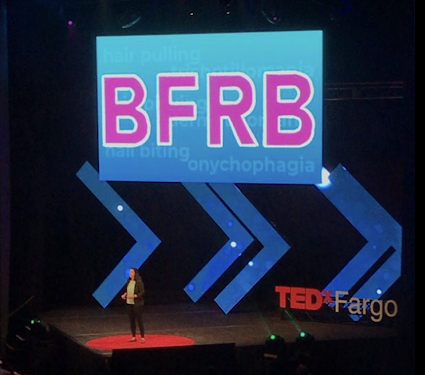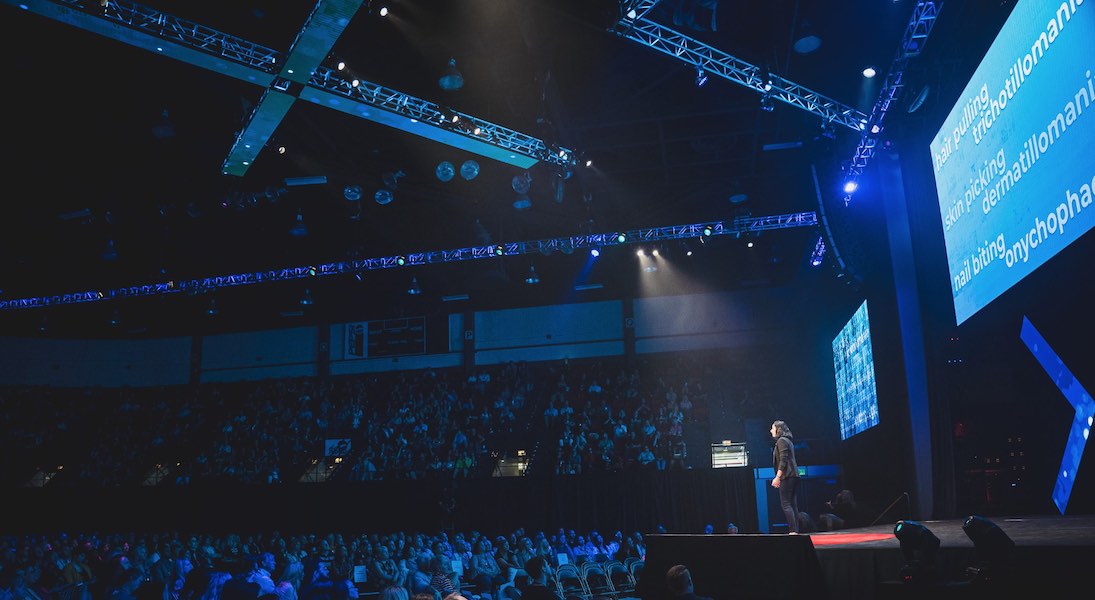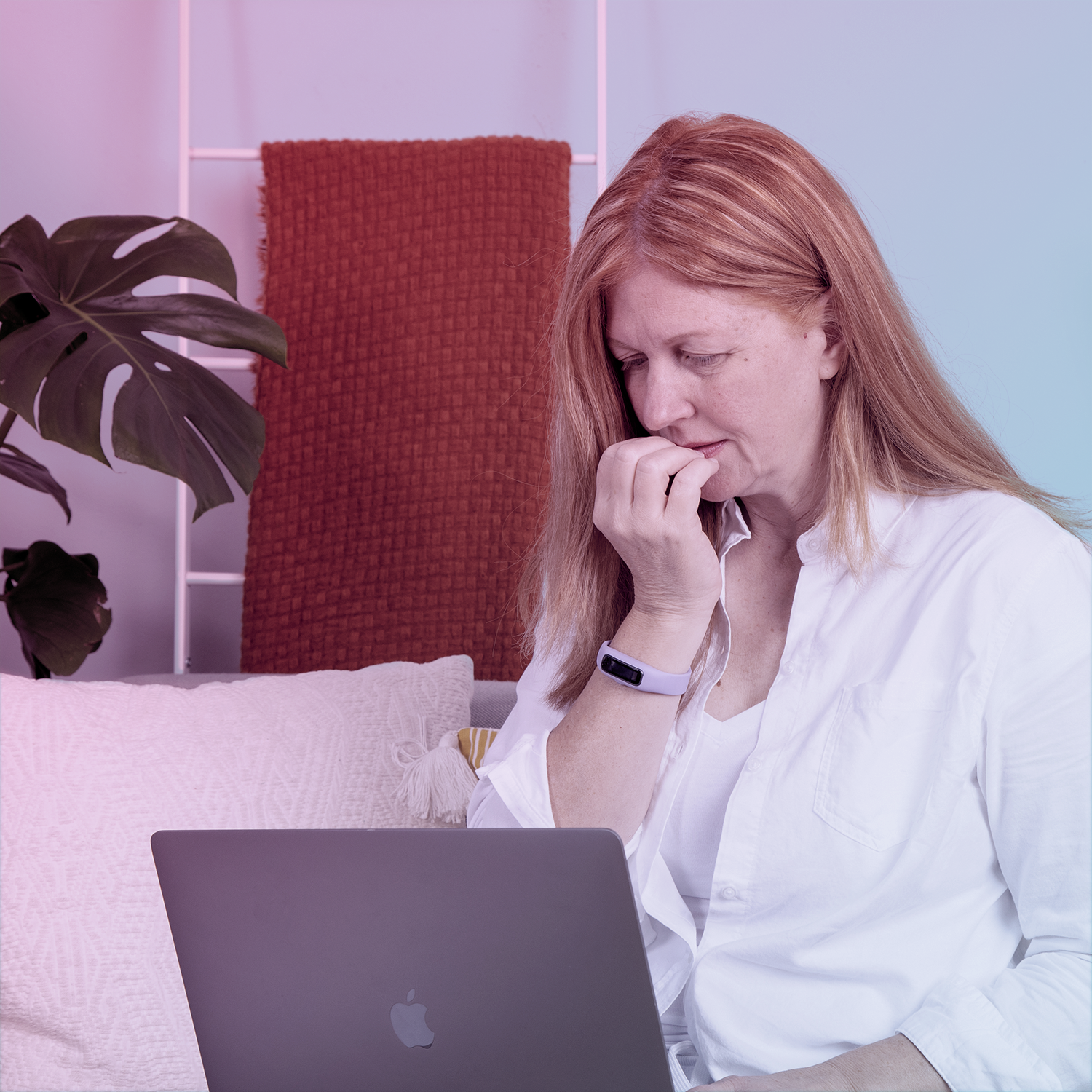by: Aneela Idnani (HabitAware cofounder who spent more than 25 years with trichotillomania.)
In July 2019, I had the honor of sharing my trichotillomania story with 2,200 attendees at the 10th annual TEDx Fargo.
The TEDx Fargo event is one of the largest and is self-organized by the amazing team at Emerging Prairie, a North Dakota startup & ecosystem builder. TEDx Fargo is a local chapter of TED, a 30-year-old nonprofit organization devoted to sharing “Ideas Worth Spreading.” You are probably familiar with their YouTube channel filled with inspirational ideas on improving our lives and the world.
TED speakers have included Bill Gates, Jane Goodall, Elizabeth Gilbert, and Sir Richard Branson. My hope is to one day join these ranks as I work to spread global awareness of Body-Focused Repetitive Behaviors (BFRBs).
To achieve this goal, an invite to TEDx is an incredible opportunity. While TED is the “main stage,” TEDx chapters host TED-style events locally. But the goal is the same: bring people together to share “ideas worth spreading” and spark deep discussion and connection.

My "idea worth spreading" is the genesis of working at - and with - HabitAware Keen for the past few years: the Power of Awareness, as it relates to Body Focused Repetitive Behaviors. I believe awareness is the cure for trichotillomania and other BFRBs. What I mean by that is:
First, someone with compulsive hair pulling disorder, chronic skin picking or excessive nail biting needs to be aware enough to recognize these behaviors as something they want to take control of. They need to acknowledge the existence of and the hold these behaviors may have on their life. They need to come out of concealing, hiding, covering up with wigs and make up in order to find the path to healing.
In looking back on my childhood, I realized hiding and covering up hair pulling for more than 25 years made it worse. The secret I was harboring eroded my self confidence, fueled the fire of negative self speak and continued the cycle of hair pulling. I was ashamed and embarrassed, but couldn’t stop.
Shame needs secrecy, fear and judgement to thrive. It’s only in sharing my secret (after getting caught!) that I was able to start letting go and finding freedom. As the secrecy, fear and judgement disappeared so did the feeling of shame.
I spent 25 years ignoring and concealing and hiding and wondering why do I pull my hair out. And it made my hair pulling worse. Consider the positive change to be made when you spend time and effort in acknowledging and healing instead!?
Second, we need broader social awareness of these mental health conditions. Though we often feel alone in it, data shows that 1 in 20 Americans deal with some sort of BFRB (source: TLC Foundation for BFRBs). These are the most common disorders you’ve never heard of -- it’s the shame, fear and judgement that keeps us from sharing.
If we have broader community awareness, you know what we get? We get seen. We get people around us educated as to what truly is going on versus what they THINK is going on. We get people who hear the abbreviation “BFRB” and immediately have a high level understanding, instead of a quizzical look on their face.
I want to trade "huh? why can't you just stop?" for "oh, I'm here for you."
People don't need to know what BFRB stands for in order to help us stand up to it. I am looking simply for a basic leveling of knowledge - in the same way that we basically know that COPD has something to do with our lungs and difficulty breathing.
With social awareness and basic knowledge of BFRBs comes understanding -- AND compassion. It means we have a community that, at the least, acknowledges the existence of our condition and at the most, is activated to support us on our path to healing.
Finally, we need real-time awareness of these very trance-like behaviors so we can choose healthier options.
Our automatic brain tells our heart to pump blood and tells our lungs to breathe in oxygen. Our automatic brain also tells our hands to use our body as a soothing mechanism by biting nails, picking at skin or pulling out hair follicles.
Some people say BFRBs “are a disorder not a decision.”
While I agree they are a disorder, I have found that the Power of Awareness of where the hands are allows you shift decision-making from the automatic brain to the consciousness so that YOU can tell your hands what to do.
This is where the work I do in creating the Keen smart bracelet collides with my personal mission of BFRB Awareness. It's why I say "my pain is my purpose." For more than two decades I was in despair and then in less than half a decade, I'm in recovery, along with thousands others thanks to HabitAware.
I hope anyone reading this will share it and help support our mission of BFRB awareness.
Thank you.
love ❤️, strength 💪& awareness 👀,
Aneela & the HabitAware team


